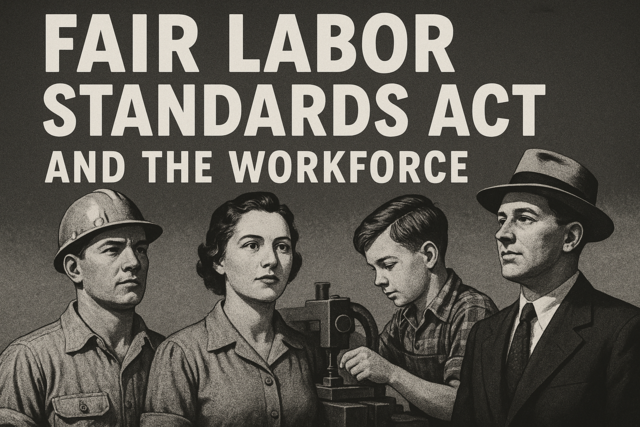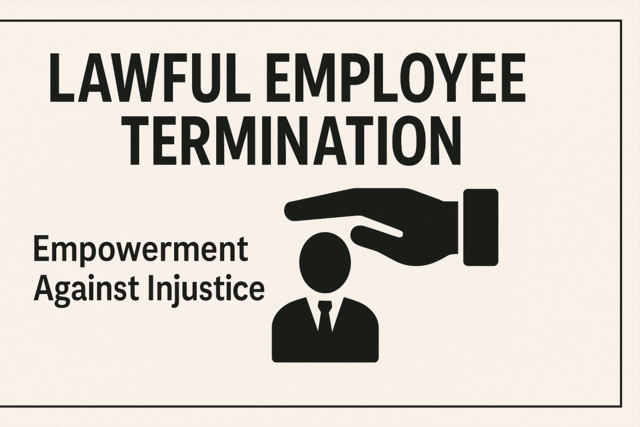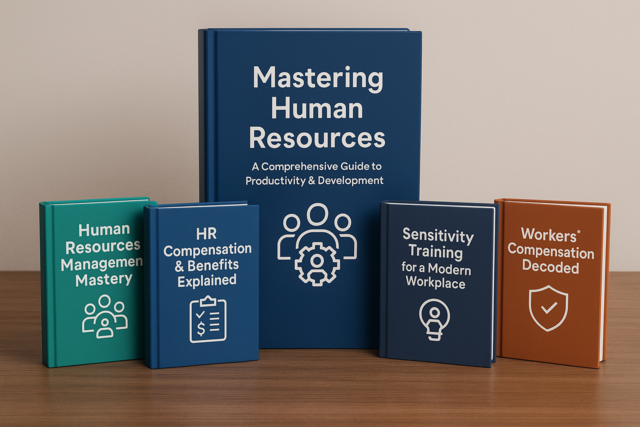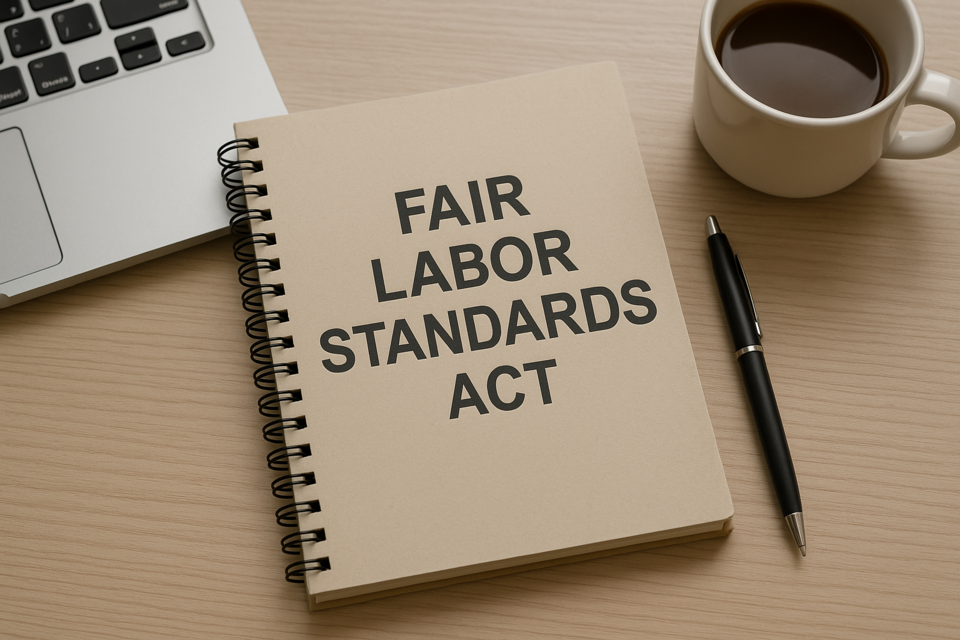Fair Standards Labor Act and the Workforce
Empower Your Team with Fair Labor Insight

6 Hours average completion time
0.6 CEUs
15 Lessons
16 Exams & Assignments
6 Discussions
15 Videos
48 Reference Files
140 Articles
Mobile Friendly
Last Updated January 2026
The 20th century bore witness to some of the most transformative events in American history. Among these, the New Deal's Fair Labor Standards Act (FLSA) of 1938 stands as a beacon of hope and a testament to the nation's commitment to social justice and workers' rights. Enacted under the visionary leadership of President Franklin D. Roosevelt, the FLSA wasn't just another piece of legislation; it was a revolution, a societal shift that sought to right the wrongs meted out to America's labor force during the trying times of the Great Depression.
This groundbreaking legislation has left an indelible mark on the fabric of American society. The establishment of the minimum wage under the FLSA wasn't merely about assigning a monetary value to an hour's labor. It recognized the inherent dignity of work and ensured that every American could expect a fair wage for a fair day's work, thus laying the foundation for the modern-day living wage movement.
Furthermore, the act's introduction of overtime pay not only sculpted the 40-hour workweek framework but also redefined work-life balance, a concept previously overshadowed by exploitative work hours.
Perhaps most poignantly, the act brought an end to the dark days of child labor, a grim era where innocence was traded for productivity in the gloomy confines of factories.
This course doesn't just recount historical facts; it takes you on a riveting journey through the corridors of power, struggle, and change. Delve deep into the intricacies of the FLSA, explore the vigilant guardianship of the Department of Labor, and understand the intricate tapestry of labor laws that shape the modern workplace.
Are you ready to immerse yourself in a narrative that spans the highs and lows of the American labor movement, a story where hope triumphs over despair, where the future is forged by understanding the past? Enroll now and become part of the dialogue on the evolution and future of workers' rights.
- Interpreting child labor regulations
- Applying labor law compliance strategies
- Understanding employment-related legal frameworks
- Understanding federal and state law dynamics
- Comprehending pay period complexities
- Analyzing labor law impacts
- Evaluating wage and hours systems
- Assessing worker rights advancements
- Examination of overtime policies
-

Creative Thinking Skills
-

Human Resources Management
-

Gender Sensitivity Training
-

Constructive Feedback and Criticism
-

Writing Effective Emails in the Workplace
-

Introduction to Six Sigma
-

Workplace Violence: A Guide to Responding and Preventing
-

Resolving Workplace Conflict
-

Creating and Managing a Non-Profit Organization
-

Nursing Assistant Career Overview
-

Decision Making Skills
-

Recruitment and Retention Strategies
-

Workplace Safety
-

Lean Management
-

Conflict Resolution
-

Management Essentials
-

Strategic Planning
-

Lawful Employee Termination
-

Personal Finance 101: How to Manage Your Money
-

Business Management
-

Communicating with Diplomacy and Tact
-

Human Resources Productivity Course Bundle
-

Fair Standards Labor Act and the Workforce
-

Management Consultant 101
-

Generational Diversity in the Workplace
